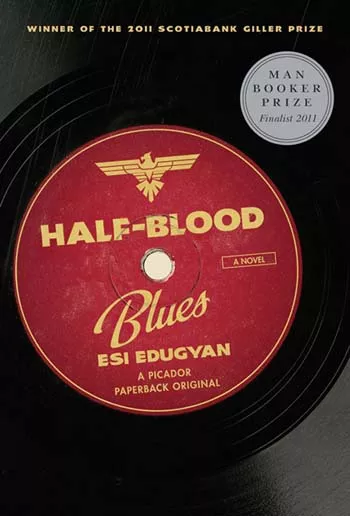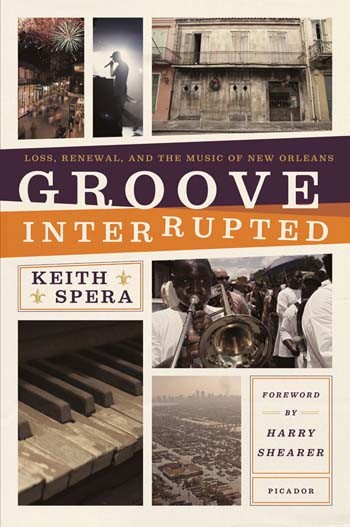Black jazz and clampdowns in Nazi Germany, women bewitched and de-sexed by a Greek classic, and famed New Orleans musicians post-Katrina. Here are three new trade paperbacks — two reprints and one original — that are easy to recommend.
Half-Blood Blues by Esi Edugyan (Picador Paperback Original, 336 pages, $15).

Esi Edugyan's Half-Blood Blues was a finalist for the Man Booker Prize, and it's easy to see why. It's a wonderful, multi-faceted historical novel that's told in parts, swinging between 1939 and 1992. The primary characters are three black musicians who met in pre-Hitler, Weimar Republic Germany and formed a jazz group, the Hot Time Swingers. In 1939 Berlin, the band is forbidden to play by the Nazis. One of the members, trumpet player Hiero (short for Hieronymous) Falk, leaves the country, but is arrested in Paris and never seen again. By 1992, Falk is considered a musical icon, and his former mates Sid and Chip are invited to attend the premiere of a documentary about Falk, to which they had both contributed. Someone questions Sid's role in Falk's demise, at which point he sets off on an as-we-lived-it recounting of the jazz group's story, with sharp, pungent descriptions of life for black musicians in pre-war Germany, and later, in Baltimore. Sid's voice is a terrific writer's creation, as Edugyan inhabits the brain of a subtly presented everyman character, his story filled with life, longing, disasters and a sensual way of viewing music. Highly recommended.
The Uncoupling by Meg Wolitzer (Riverhead, 304 pages, $15).

An eye-opening, often hilarious look at the intricacies of modern hetero womanhood, The Uncoupling is a take on Aristophanes' Lysistrata, the ancient classic in which the women of Greece refuse to have sex with their husbands in order to stop a war. A new high school drama teacher in smallish Stellar Plains, N.J., directs a production of Lysistrata, and before you know it, the women in town are withholding sex from the men; not to end a war, but because they've been bewitched, making their libidos simply fade away, to the point that the very thought of physical intimacy becomes insufferable. Yes, the spell is finally understood, used, and lifted; but that's all I'll reveal about the outcome, although Meg Wolitzer's penetrating eye for telltale details and wicked comedic timing make the end worth waiting for. Think of a less self-important Margaret Atwood with better jokes.
Groove Interrupted: Loss, Renewal, and the Music of New Orleans by Keith Spera (Picador, 260 pages, $17).

A city doesn't survive a slew of ongoing disasters without being tough. Keith Spera, who writes about music for New Orleans' Times-Picayune, reports with empathy and even intimacy on the post-Katrina lives of some of his city's musical greats in Groove Interrupted. Fats Domino tools around New York, promoting a tribute CD for Katrina victims. Jazz trumpeter Terence Blanchard, who emerged as a post-Katrina hometown hero, agonizes over his city and how to express its essence in music. Aaron Neville comes back to New Orleans for the first time since the floods to bury his wife. The late Alex Chilton goes about his business in a modest home in the Treme neighborhood. Other New Orleans music legends get the Spera treatment, too: Gatemouth Brown (master of many a great night at the Double Door Inn in Charlotte), legendary writer/producer/performer Allen Toussaint, best-selling rapper Mystikal, the Rebirth Brass Band, Pete Fountain, Juvenile, and the 2006 New Orleans Jazz & Heritage Festival. Spera's collection of portraits is tightly written and alive with good humor, despair, resolve and a palpable love for New Orleans. It's an encouraging work — encouraging for the glimpse it gives of artists helping artists, never mind which particular brand of N'awlins music the helpers, or the helped, like to play.
Correction: In a recent review of a book about the legendary country music duo the Louvin Brothers ("Dreamy and Violent," CL, April 4), I mistakenly wrote that musician Gram Parsons was from South Carolina. He was actually from Waycross, Ga. I don't know what the hell I was thinking.